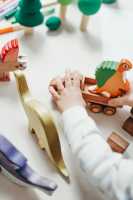
19 Jun Playful Teaching Removes Barriers to Learning
MedicalResearch.com Interview with:

Dr. Forbes
Lisa Forbes, Ph.D, LPC, NCC
Clinical Assistant Professor
Counseling Program
University of Colorado Denver
MedicalResearch.com: What is the background for this study? What are the main findings?
Response: The most common mode of learning in tertiary education is lecture-based learning despite the knowledge that more active, engaged, and flexible approaches to teaching may better support the learning process. This study aimed to understand graduate students’ experiences with a playful pedagogy as an alternative approach to learning.
MedicalResearch.com: What are the main findings?
Response: The main findings suggest that students value a playful pedagogy as an uncommon and unexpected mode of education. Students reported that play ignited a valuable learning process that removed barriers to learning such as stress, anxiety, and fear while simultaneously establishing a warm classroom community. It seemed as though once barriers to learning had reduced and connection was created, students were more vulnerably engaged in the learning process.
MedicalResearch.com: What should readers take away from your report?
Response: There seems to be a dominant social narrative communicating that play is for children, therefore, play is often excluded in adulthood and in higher education because it’s considered trivial and a waste of time. The findings from this study can encourage people to question the societal narratives about play. There’s a plethora of research on the benefits and importance of play over the lifespan; so, we should question why play is often separated out of work, learning, and adult life.
 MedicalResearch.com: What recommendations do you have for future research as a result of this work?
MedicalResearch.com: What recommendations do you have for future research as a result of this work?
Response: Future research could provide additional empirical evidence for the use of a playful pedagogy in higher education. Researchers could explore the different forms that play takes in a learning environment to provide guidance regarding how educators could utilize a playful approach. More research needs to examine the social scripts of play in adulthood as our values and beliefs precede action and behavior.
MedicalResearch.com: Is there anything else you would like to add?
Response: Beyond higher education, it’s important to reconsider how we, as a society, value play in adulthood. If you consider the very aspects of life, work, relationships, and health that adults pursue (i.e., creativity, innovation, motivation, connection, engagement, joy, well-being, etc.), these aspects are more easily achieved if we are open to play.
Citation:
THE PROCESS OF PLAYFUL LEARNING IN HIGHER EDUCATION: A PHENOMENOLOGICAL STUDY
Lisa Forbes
University of Colorado Denver
HTTPS://DOI.ORG/10.22329/JTL.V15I1.65
[wysija_form id=”3″]
[last-modified]
The information on MedicalResearch.com is provided for educational purposes only, and is in no way intended to diagnose, cure, or treat any medical or other condition. Always seek the advice of your physician or other qualified health and ask your doctor any questions you may have regarding a medical condition. In addition to all other limitations and disclaimers in this agreement, service provider and its third party providers disclaim any liability or loss in connection with the content provided on this website.
Last Updated on June 19, 2021 by Marie Benz MD FAAD
